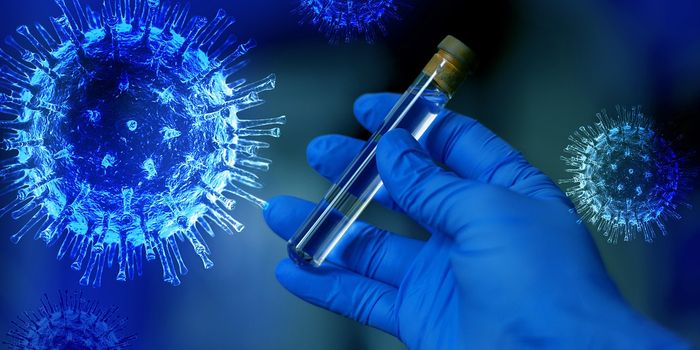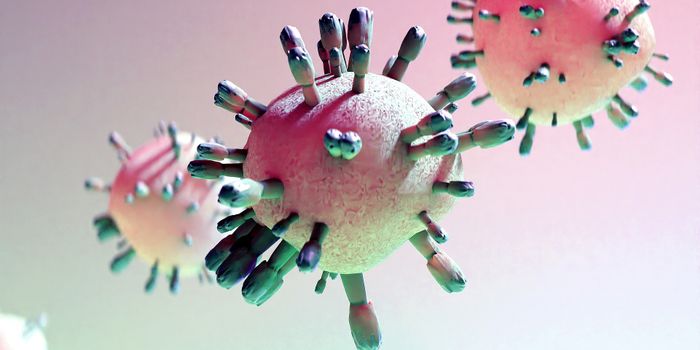Scientists at Albert Einstein College of Medicine of Yeshiva University, Bronx, NY, have designed a new type of vaccine that could be the first-ever for preventing genital herpes-one of the most common sexually transmitted diseases, affecting some 500 million people worldwide.
By using a counterintuitive scientific approach, researchers were able to prevent both active and latent infections caused by herpes simplex virus type 2 (HSV-2), the virus that causes genital herpes. Findings from the research, conducted in mice, are published in the online journal eLife.

"Developing a herpes vaccine is one of the holy grails of infectious disease research," says co-study leader William Jacobs Jr, PhD, a Howard Hughes Medical Institute Investigator and the Leo and Julia Forchheimer Chair in Microbiology & Immunology at Einstein. "We decided to take an approach that runs counter to most of the tactics used by other scientists-and we seem to have cracked the code." Jacobs is also professor of microbiology an immunology, and of genetics, at Einstein.
It was generally assumed that an effective HSV-2 vaccine must stimulate the body to produce neutralizing antibodies-particularly against a viral surface protein called glycoprotein D (gD-2) that HSV-2 uses to enter human cells. For decades, researchers have focused on "subunit" herpes vaccines that rely primarily on gD-2 as the antigen to stimulate the body's antibody response--but none has prevented HSV-2 infection in humans.
"This suggests we've been stimulating production of the wrong type of antibodies," says co-study leader Betsy Herold, MD, the Harold and Muriel Block Chair in Pediatrics at Einstein and chief of the division of pediatric infectious diseases at the Children's Hospital at Montefiore and Einstein. Herold is also professor of pediatrics, of microbiology and immunology, and of obstetrics and gynecology and women's health at Einstein.
The Einstein team took a completely different approach in designing their "live" HSV-2 vaccine. Instead of using gD-2 to stimulate antibodies, they deleted the gene for gD-2 from the virus (and, consequently, the protein's expression on the viral surface) -a manipulation that weakens the virus, rendering it unable to infect cells or cause disease. They hypothesized that this altered virus would stimulate the body to produce different and more effective antibodies.
"We had a hunch that gD-2 might be masking other viral antigens, and that by removing this dominant protein we would expose those previously masked antigens to the immune system," Jacobs says.
When the vaccine, dubbed "delta-gD-2" ("delta" is shorthand for a gene deletion) was given to mice, it provided complete protection against subsequent infection with normal (wildtype) HSV-2, whether animals were challenged intravaginally or through the skin. No virus was detected in vaginal or skin tissue of vaccinated mice or in neural tissue, where HSV-2 often hides in a latent form only to emerge later to cause disease. When unvaccinated mice were challenged with wildtype HSV-2, all showed evidence of the virus in the three tissue sites, and all succumbed to the disease.
The vaccinated mice showed low levels of neutralizing antibodies but high levels of antibodies associated with a different immune response called antibody-dependent cell-mediated cytotoxicity (ADCC). This and other experiments described in the paper-such as finding that blood serum from vaccinated mice was able to passively protect unvaccinated mice -conclusively demonstrated that ADCC antibodies were responsible for protecting against HSV-2.
"Our findings challenge the existing dogma that says an effective herpes vaccine must stimulate neutralizing antibodies against gD-2," Jacobs says. "It's almost as if the virus evolved gD-2 specifically to hide the other antigens. gD-2 turns out to be a Trojan horse that misleads the immune system."
The new vaccine also appears to be safe. The researchers calculated the number of wildtype viruses needed to kill mice-and then administered 1,000 times that number of delta-g D-2 viruses to mice that lacked immune systems and so couldn't ward off infections. The result: The mice survived and didn't develop herpes. The Einstein team hopes to begin clinical trials on humans within a few years.
Initial tests suggest that the vaccine is also effective against HSV-1, or oral herpes, although this needs to be further evaluated. In addition, the vaccine's novel design may help in creating vaccines against other disease-causing microbes that invade the body through mucosal tissues, including HIV and the bacterium that causes tuberculosis.
"Genital herpes infections can not only be serious in and of themselves, but they also play a major role in fueling the HIV epidemic," Herold says. "People infected with HSV-2 are more likely to acquire and to transmit HIV-which further underscores the need to develop a safe and effective herpes vaccine."
The paper is titled "Herpes simplex type 2 virus deleted in glycoprotein D protects against vaginal, skin and neural disease."
[Source: Albert Einstein College of Medicine]









